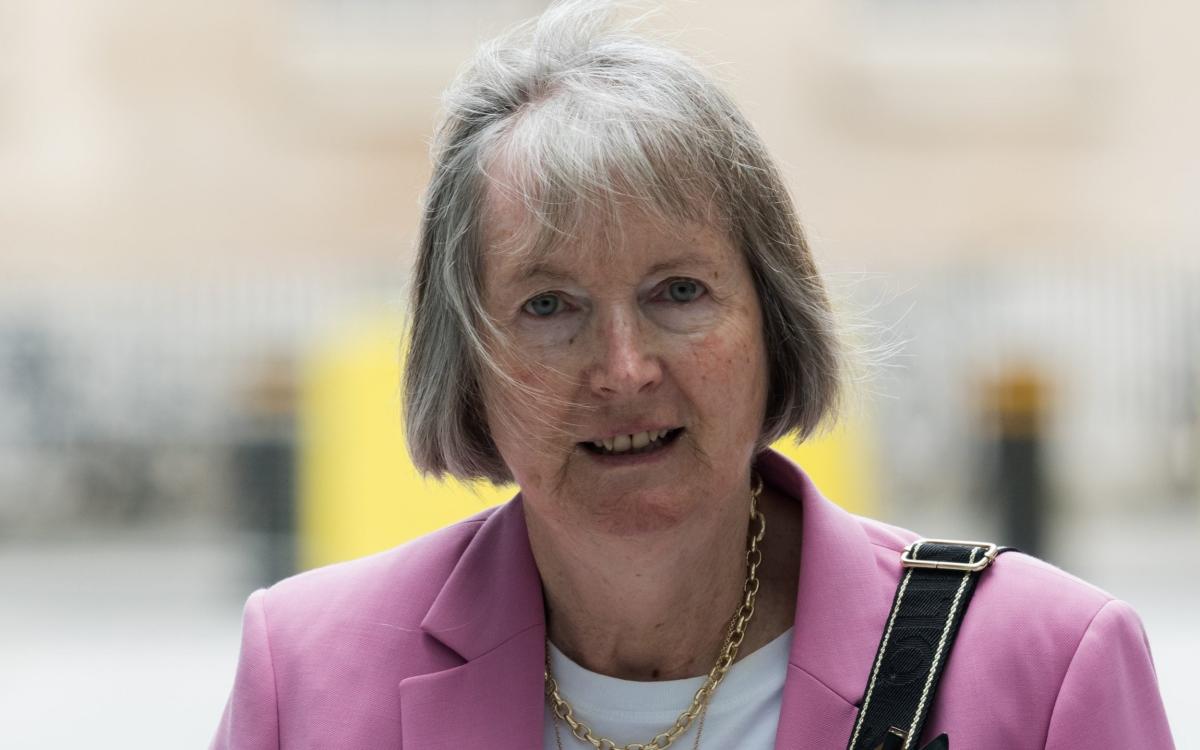
Women’s rights have figured far more prominently in this election campaign than Labour would have liked. Now, in what should cause considerable alarm, the issue seems to be gathering momentum, with rumours swirling that Harriet Harman, who is retiring as an MP, is set to be appointed as the new chair of the Equality and Human Rights Commission (EHRC).
This will be unwelcome news indeed for feminists who have been campaigning to protect women’s rights to privacy and safety. Harman has long been an advocate of Stonewall ideology that holds that “trans women are women”.
It’s a controversy that Labour would much prefer not to have been raised at all, and, lest we forget, it wouldn’t have been had it not been for the efforts of the likes of author J.K. Rowling – a former Labour supporter and donor – and the party’s own candidate in the marginal seat of Canterbury, Rosie Duffield.
The latest Labour frontbencher to become irritated at journalists’ inexplicable tendency to dare to pose the question about trans rights versus women’s rights was the party’s national campaign coordinator, Pat McFadden, who is normally one of the party’s most thoughtful and effective communicators. But asked whether trans women would continue to be able to use women-only spaces under a Labour government, McFadden became irritated that the question was even being asked (which itself answers the question).
He resorted, as so many politicians do as an alternative strategy to actually taking a side, to his leader’s universal get-out. McFadden said: “For people going through this [transition] let’s act with a bit of kindness rather than using them as some kind of ‘gotcha’ question in an interview all the time.”
Isn’t it odd how, when pressed, certain politicians always – on every single occasion – demand understanding and sympathy, not with the women who are genuinely fearful of incursions into their private spaces and the genuine threat to their personal safety, but to the men who pose that threat?
And so to Harman’s rumoured elevation to head the EHRC when the term of the current chair, Baroness Falkner of Margravine, comes to an end in November. If Prime Minister Starmer goes ahead with Harman’s appointment rather than offers Falkner a second term, it will be a body blow to women’s rights campaigners; Falkner has earned the wrath of the trans industry by advising the government to toughen protection for biological women’s spaces, even being forced to defend herself from allegations of bullying, which her allies maintain was nothing more than a witch hunt by trans “allies”.
Harman, on the other hand, has long been a “trans ally” herself. She was the architect of the Equality Act, which first established gender transition as a “protected characteristic” in law and critics fear her appointment would result in the continuation, or even extension, of Stonewall’s influence throughout Whitehall.
In 2021 Keir Starmer said Duffield was wrong to claim that “only women have a cervix” and later claimed that “99.9 per cent of women don’t have a penis”.
But since then he has been shifting clumsily and awkwardly away from his previous stance that “trans women are women”. He has already ditched Labour’s former policy of gender self-ID for trans people as a replacement for the existing process for gaining a Gender Recognition Certificate (GRC), although the party’s manifesto nevertheless commits the next government to making the process easier. And challenged during a televised election debate on whether he now agrees with Duffield on her gender critical views, Starmer chose instead to agree with another man – Tony Blair – who had caused much offence by stating that “men have penises and women have vaginas” (something that in earlier, more sane times, would not have made headlines).
Making life even more difficult for Labour’s trans allies was the publication of the Cass Review into trans health services for young people in England, an authoritative document that cast serious doubt on the effectiveness or wisdom of “affirmative” therapy for young people questioning their gender and the efficacy of puberty-blocking drugs. Again, Labour is facing both ways, by promising to implement Cass’s recommendations while also legislating for a “trans inclusive” ban on all conversion therapies, which feminists and parents’ groups fear could criminalise any attempt to question or challenge teenagers’ confusion about their gender.
No doubt Starmer would have preferred the prospect of Harman becoming head of the EHRC not to have emerged this side of polling day, although with only a day to go it’s unlikely to change many people’s minds about who they’ll vote for. He should understand that whether or not this appointment is made, everything his government says and does on women’s rights will be analysed closely and appropriately critiqued.
However much his ministers might complain about having to answer the same old questions in interviews – “What is a woman?”, for example – it will nevertheless be asked until ministers actually come up with an answer that makes sense and which they themselves believe. Replacing Baroness Falkner with Harriet Harman would be an explicit statement of intent that the next Labour government will be no champion of women’s rights.
EMEA Tribune is not involved in this news article, it is taken from our partners and or from the News Agencies. Copyright and Credit go to the News Agencies, email news@emeatribune.com Follow our WhatsApp verified Channel





